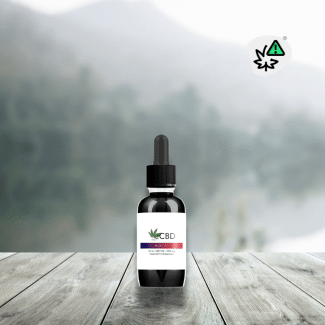
As cannabidiol ( CBD ) gains popularity for its potential therapeutic benefits, its interaction with traditional medications, particularly cholesterol-lowering medications, is becoming a crucial area of investigation. This article explores how CBD affects those undergoing treatments for high blood lipid levels, a condition known as hyperlipidemia, which includes high levels of cholesterol and triglycerides.
Overview of cholesterol-lowering medications
Cholesterol-lowering drugs, also known as lipid-lowering agents, are designed to reduce blood lipid levels and prevent cardiovascular disease linked to the development of atherosclerotic plaques. These medications are essential in the management and treatment of conditions such as high cholesterol and hypertriglyceridemia.
Key drugs in cholesterol-lowering treatment
Among the main drugs used in cholesterol-lowering treatment are:
- Atorvastatin (Lipitor) : This medication is an HMG-CoA reductase inhibitor that reduces cholesterol production in the liver.
- Simvastatin (Zocor) : Another HMG-CoA reductase inhibitor, it works similarly to atorvastatin to control cholesterol levels.
- Rosuvastatin (Crestor) : Also in the HMG-CoA reductase inhibitor family, this medication helps effectively lower cholesterol levels.
To ensure safe use, it is essential to consult a healthcare professional for appropriate treatment and regularly monitor blood parameters and potential side effects.
Impact of CBD on drug metabolism
The effect of CBD on drug metabolism is significant, particularly through its interaction with the cytochrome P450 (CYP450) enzyme system in the liver, which is responsible for the metabolization of most drugs. Research indicates that CBD may inhibit certain CYP450 enzymes, such as CYP3A4 and CYP2D6.
CBD and cholesterol-lowering drugs
Inhibition of CYP450 by CBD may result in increased plasma concentrations of drugs metabolized by these enzymes, potentially leading to overdose and increased risk of adverse effects.
Interaction details
- Atorvastatin and CBD : Atorvastatin is primarily metabolized by CYP3A4. Inhibition of this enzyme by CBD may reduce the metabolism of atorvastatin, thereby increasing the drug's blood levels and potentially its toxicity and adverse effects, such as myopathy or rhabdomyolysis.
- Simvastatin and CBD : Likewise, since simvastatin is metabolized by CYP3A4, CBD may increase its blood concentration, increasing the risk of side effects such as muscle pain.
- Rosuvastatin and CBD : The metabolism of rosuvastatin primarily involves other CYP450 enzymes, with a small fraction metabolized by CYP3A4, making the effects of CBD less pronounced than those seen with atorvastatin or simvastatin.
Tips for Safe Use of CBD With Cholesterol-Lowering Medications
Given the potential interactions between CBD and cholesterol-lowering medications, it is crucial to approach their combined use with caution:
- Consult healthcare professionals : Always discuss the potential use of CBD with a healthcare professional if you are on cholesterol-lowering medication. They may adjust your medication dosages to mitigate the risk of an interaction.
- Tell your healthcare provider about all medications : Let your healthcare provider know about all other medications you are taking. This can help manage any additional interactions that could worsen the effects of CBD and cholesterol-lowering medications.
- Monitor your health and side effects : Keep an eye on your health and contact healthcare professionals promptly if you experience any side effects. Regular monitoring of blood lipid levels and potential side effects is advised.
In summary, although the therapeutic potential of CBD is promising, its interactions with cholesterol-lowering medications require careful management and regular medical monitoring to ensure safe and effective use.
















